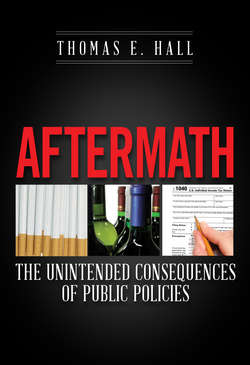Aftermath

Реклама. ООО «ЛитРес», ИНН: 7719571260.
Оглавление
Thomas E. Hall. Aftermath
Отрывок из книги
To the memory of my brother Jim
PREFACE
.....
The Great Depression (1929–1941) ranks among the most significant events ever to occur in the United States. The severity of the initial economic recession (1929–1933) is important to the history of the income tax because it caused plummeting incomes, which resulted in a huge decline in tax revenue. Consequently, the federal government experienced sizable budget deficits. The prevailing view at the time was that budget deficits should be avoided, and one way to balance the budget was to raise revenue. Mellon’s idea that lower tax rates could yield more revenue was thrown out the window. The government instead opted for higher tax rates.
President Herbert Hoover started the tax increase ball rolling in 1932. Figure 2.1 shows the top and bottom federal income tax rates from 1913 to 2011. The budget deficit was a major issue in the 1932 presidential election between incumbent Herbert Hoover and challenger Franklin Roosevelt, and both men pledged to balance the budget. In 1932, before the election, Hoover supported higher tax rates as a way to raise revenue, and Congress passed the tax increase in June. Figure 2.1 shows that tax rates rose substantially for high-income taxpayers as the top rate went from 24 percent to 63 percent. The corporate profit tax rate was increased as well. These higher tax rates, however, did not eliminate the budget deficit because the economy continued to plunge in 1932, in part because the higher tax rates reduced both spending and the incentive to earn income.
.....